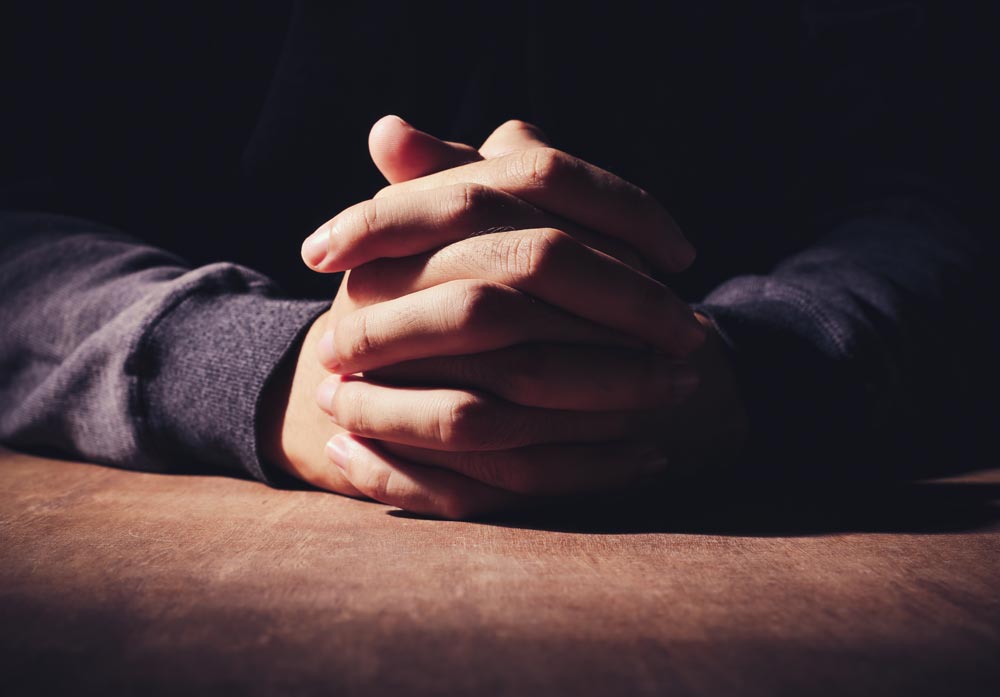We Accept Most Insurance. Please Call to Verify Yours.






![]()







Uh oh. Are you already turned off by the title of the blog? Maybe not if you’ve clicked the link and are still reading this. Perhaps you’re a bit curious, searching for information for yourself or a loved one, maybe you’ve only seen references to 12 step programs on TV and want to know what they’re really about. Whatever the reason for clicking on this blog, allow me the opportunity to tell you what the 12 steps are from my perspective and experience with them.
Historically, all societies have had their own approaches to deal with alcohol or substance use issues; some have been culturally based, some have been authority based and some have been family based. It was only when Bill Wilson and Dr. Bob Smith founded Alcoholics Anonymous in 1935 when the popularization of peer based recovery occurred.
One person in recovery helping another. Period. There are no experts and there is no hierarchy. Alcoholics Anonymous and Narcotics Anonymous blossomed into support networks based on social connectivity and the individual’s view of spirituality.
Outlined in the Big Book of Alcoholics Anonymous, the Basic Text of Narcotics Anonymous and adapted for all other 12 Step programs, the 12 steps are as follows:
Okay. The first time I read this I was instantly offended – my interpretation was:
“You must declare that you are incapable, completely helpless, useless & a weakling. Oh yeah, and you suck at life” When I took a pause for a moment and brushed my simultaneously inflated and bruised ego aside, I came to realize that the first step specifies that we are powerless over our addiction, which was the absolute undeniable truth for me. I definitely was not the one calling the shots in my relationship with substances- they dictated my life & my every decision. As a result of this powerlessness, everything in my life became very very messy and unsavory- I’d go as far as calling it unmanageable.
Boom, there it was. I understood the 1st step.
Wait, I just said that my life was unmanageable, but now this next step peppers in the implication that I was insane? I felt called out. OF COURSE I WAS INSANE. I’d gotten to a point where no matter what I did, I could not stop using, I compromised my values and I was totally dependent on my substance of choice – I was even willing enough to try these culty steps in an effort to do anything different than what I had been doing. So it became easy to come to an understanding that just me, myself and I alone could not help my addiction, but that I must be open minded to the possibility that something outside of myself could help. The things outside of myself, or Powers greater than myself, are people who care for my well being, going to meetings and hearing stories of success and hope, and even continuing onto more of these 12 steps.

TURN MY WILL AND MY LIFE OVER? Am I really buying into this? It sounds so forceful, so demanding, so harsh. Thankfully, I’ve had understanding and compassionate people explain this to me in a way that I could understand and resonate with. Every single time I become stubborn and determined to do things my way or think that I am right all of the time or I am a complete victim in a situation, I am able to take a step back and *turn my will over* and realize it’s not all my control, my choice, my opinion- and I gain perspective. I believe there is a Higher Power, and I know for a fact it isn’t ME. When my will and my life have been turned over then I can approach any situation from a more neutral perspective; I check on what I cannot change and gain acceptance and I take note of what I CAN change and go forward.
I hate to break it to you, but the 4th step is not as big, bad or scary as it’s been made out to be. I’ve had the opportunity now to write out a few 4th steps. To make a searching and fearless moral inventory basically means writing out an honest timeline of our lives with conscious recognition of our patterns as well as taking note of the participation in our own suffering. When we are able to inventory our past leading up to our current and look at it as an overview, it becomes much clearer to see where we have repetition of action, feelings and concurrence of occasions.
This step, usually taken with the sponsor who is leading you through the steps, is a reading of the 4th step. There is great power in not only writing out our timeline, but then reading it outloud. Therein this step is a great deal of honesty, courage, and growth. The bond that grows from the sharing of experiences between sponsor and sponsee is a pretty special experience. Can you tell I’ve started to buy into the steps around this time?
The contention of my earlier days in recovery, with internal fights over the specific wording of a step or believing that things were very black-and-white in this program, has begun to wear off.
Remember all those patterns that were written down in the 4th step? This is the key to writing out and recognizing all of our defects of character. The steps are intentionally ordered the way that they are. Because I wrote a 4th step and became willing to be honest in the inventory of my life past, it made it much easier to do a 6th step and inventory of life going forward. In taking this look at myself and actually accepting this process, I was able to see myself. I mean like, REALLY REALLY REALLY see myself. I could see when I was falling into patterns of being defensive, avoidant, manipulative, judgemental, fearful or whatever. It was a really big WHOA moment in my life- it was like a mirror being held up to me at all times, I could see myself and my actions more clearly. When I stopped just living in my head and acting by default I started wanting to correct these patterns before they continued.


So how do we do this? Some shortcomings are MUCH harder to contain or correct, especially if these feelings and patterns are deeply deeply ingrained. This is when I turn my will over and simply practice the willingness to want to continue to work on myself. There is no perfection to be attained. There will be no time in life where any one of us will act without shortcomings- period. But the point is to continue to WANT to work on them. To acknowledge them when they come up and to strive to be a better person each day.
Ooof. Digging up more past pain. It’s not easy, but is it worth it? It sure is. This list of all persons we have harmed is like heavy baggage being dragged around with us. We can’t bury it- it will resurface. We can’t ignore it, it will pop up right in front of our faces. It is the courage to face our past head on and be willing to make things right – however that looks. For some, it is making financial amends – paying people back. For others, it is living amends – just going forward with continuity of living a life in recovery. Amends usually happen over a period of time and are ongoing. We often get gifted with being in the exact right time and place to make an amends
This is the daily maintenance, the regular routine and practice of applying all prior steps to the day so that things don’t build up. Did I harm someone? Could I have done better in a situation? What was my part in an altercation? How can I apply what I’ve learned and go forward to keep problematic situations from recurring? When consistent upkeep over our inventory is practiced, we get the opportunity to check in on ourselves every day.
As someone who is personally non-religious but spiritual, I found a lot of freedom in this step. I have been able to construct my own versions of prayer and meditation which help keep me connected to things outside of myself and not just stuck in my own head. For example, I practice gratitude daily, like, rigorously and deliberately. Practicing gratitude for me is BOTH prayer and meditation. I am saying prayers of thankfulness for all of the things I am focusing my attention on and I am meditatively taking the conscious time and space to really gather my gratitude. This is the process which works for me. The interpretation of prayer and meditation is personalized to each member of the program. If it works for you and makes you feel closer to your Higher Power, then it is just perfect.
Here it is! The 12th step. After this process of uncovering, discovering and discarding so many parts of ourselves, a spiritual change has occurred. I am absolutely not the same person who started hesitantly and begrudgingly working step 1. I have grown in so many areas of my life, but most of all, I have stayed clean throughout it and realized how capable and worthy of this growth I am. All of the lessons I’ve learned in working the steps, honesty, open mindedness, courage, integrity, hope, faith, and more are taken with me in my daily life and practiced consistently. I don’t know about you, but these were definitely not principles which I practiced in my life before getting clean.
This is a gift beyond gifts and a gift that is meant to be SHARED. There is a staggering amount of alcoholics and addicts still suffering in active use who don’t know where to start in the process of recovery. 12 Step programs are founded on attraction rather than promotion. We do not force or demand anyone to participate in these programs, we just live our lives as men and women in recovery who have a message of hope to share. If that hope inspires someone else and we can be a part of someone else’s recovery, then it is an absolute honor to do so.

Having taken all 12 steps and now leading other women though the steps has been a life changing process which I didn’t even know that I wanted or needed. I came into recovery just wanting to quit being addicted to substances and get my life together a little bit – I didn’t realize that in participating in all of this my perspectives would change, my heart would soften and my empathy would grow immensely. I do not push 12 steps on others, but I also say ‘don’t knock it until you’ve tried it’. This is simply my personal experience with working these steps, if you’re still curious, why not find out for yourself?
If you or a loved one is seeking help for alcohol or other substance abuse, contact us at Stairway Resource Center today. At Stairway Resource Center we provide a 60 to 90-day outpatient program that takes place in an engaging and supportive community setting. We offer dual diagnosis treatment and daily group and individual therapy for our clients, in addition to fun community-based events and activities.

Director of Alumni and Case Management
Heidi has been working in the field of addiction for the past 4 years, has a RADT and moonlights as a blogger and Brainpaint Neurofeedback Technician. If asked, there is nothing in the recovery field that Heidi won’t do to learn more or to be of service to the newcomers.
As alumni and outreach coordinator, Heidi feels she has the unique opportunity to keep continuity in the community- even after people have finished their initial SUD programming.
Events range from seasonal activities, fundraisers, service events and special interest activities.
Heidi is excited to perpetually generate more community cohesiveness, fun & gratitude for others and herself.